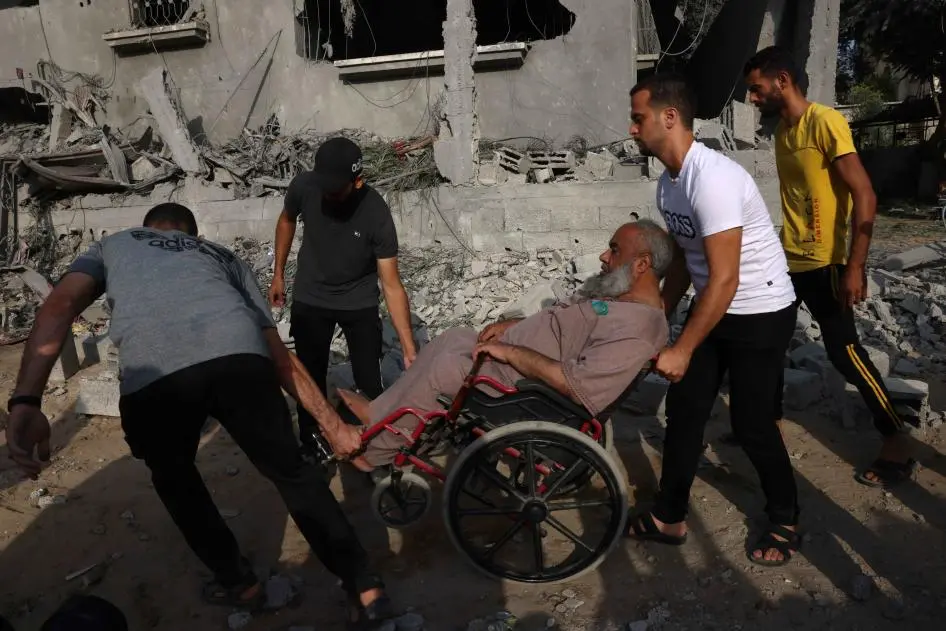The people of Gaza City are once again caught in the grip of uncertainty. In the Al-Nasser neighborhood, which until now had been spared from the most destructive assaults, families woke up to leaflets scattered across the streets.
Dropped by Israeli aircraft, the papers carried a stark warning: troops may soon move into the area, and residents should leave before it is too late.
For many, the words on those papers carried more weight than bombs. They were not just instructions; they were ultimatums. Yet the choice to flee is not simple. The south, where thousands have already sought shelter, is overcrowded, undersupplied, and unsafe. Staying behind, however, risks being trapped in an area that could soon see heavy fighting.
“It feels like our lives are being written on scraps of paper thrown from the sky,” said one father of four, standing in front of the house he built with his own hands. “If we leave, we lose everything. If we stay, we risk everything.”
The human cost of this conflict is not measured only by casualties, but by the silent suffering of displacement. Families that once celebrated weddings and birthdays together now pack belongings onto donkey carts or motorcycles, hoping the road ahead is open. Each step southward takes them further from the life they knew, and closer to an unknown that may hold even greater danger.
Also Read; Algeria Launches Continent‑Wide Startup Innovation Fund
Over the past two years, residents say they have been forced to move repeatedly, each time hoping it will be the last. But with food shortages, hospitals overwhelmed, and safe zones nonexistent, the word “refuge” has lost its meaning. “We have no energy left,” said Ahmed Al-Dayeh, a young man pushing a cart of blankets and cooking pots. “We are only moving because we must, not because we believe we will find safety.”
International observers warn that the situation risks spiraling into a humanitarian catastrophe. Aid groups argue that ordering mass evacuations without providing safe corridors is effectively pushing civilians into peril. Meanwhile, Israeli officials insist their operations are aimed at weakening Hamas, the armed group entrenched in Gaza, but for ordinary families, these political justifications matter little when survival is at stake.
Beyond Gaza, the world watches with alarm. Regional leaders and international organizations are calling for restraint and immediate humanitarian access. Yet inside Al-Nasser, mothers still gather children close at night, unsure if they will wake to silence, shelling, or another round of warnings falling from the sky.
In the end, the struggle here is not just about territory or politics — it is about people clinging to dignity in the face of despair. Whether they stay or flee, the residents of Al-Nasser are being forced to make choices no family should ever confront.







